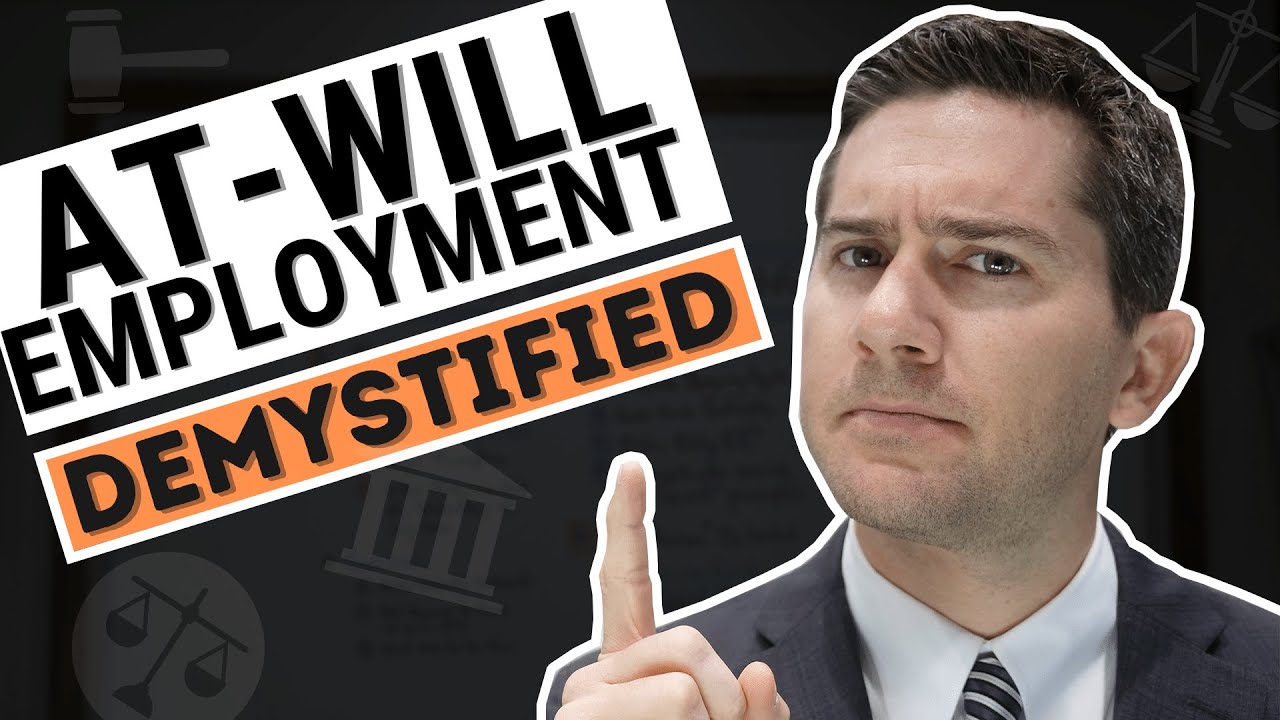Does Rhode Island Recognize At-Will Employment?
Rhode Island recognizes the at-will employment doctrine, which means that employers have the right to terminate an employee’s employment for any reason, as long as it is not discriminatory or in violation of an employment contract. Similarly, employees have the freedom to leave their jobs without providing a specific reason. However, it is important to note that certain exceptions and limitations apply to the at-will employment rule in Rhode Island.
Understanding the At-Will Employment Doctrine
The at-will employment doctrine is a legal principle that serves as the default employment relationship in the United States. Under this doctrine, both employers and employees have the right to terminate the employment relationship at any time, for any reason or no reason at all, without incurring legal liability. This principle provides flexibility to both parties, but it also raises concerns regarding job security and fairness.
Historical Development of At-Will Employment
The at-will employment doctrine traces its roots back to the nineteenth century, when courts began recognizing the principle that employment relationships were presumed to be at-will unless there was evidence of an employment contract for a specific term. This doctrine was established to protect employers’ freedom to manage their workforce and make personnel decisions without interference from the courts.
Exceptions to the At-Will Employment Rule
While the at-will employment doctrine is the general rule in Rhode Island, there are several exceptions that afford employees some protection against wrongful termination. For instance, employers cannot terminate employees in violation of anti-discrimination laws, such as those based on race, gender, age, or disability. Additionally, employers are prohibited from retaliating against employees for exercising certain rights, such as filing a workers’ compensation claim or reporting illegal activities.
Rhode Island’s Approach to At-Will Employment
Rhode Island follows the at-will employment doctrine, but it also recognizes certain public policy exceptions that limit an employer’s ability to terminate employees. These exceptions are based on the principle that employers should not be allowed to fire employees for reasons that are against public policy or in violation of the employee’s fundamental rights. For example, an employer cannot terminate an employee for refusing to engage in illegal activities or for reporting workplace safety violations.
Statutory Protections for Rhode Island Employees
In addition to the exceptions based on public policy, Rhode Island employees are also protected by various state and federal laws. These laws provide safeguards against discrimination, harassment, and unfair treatment in the workplace. For instance, the Rhode Island Fair Employment Practices Act prohibits employers from discriminating against employees based on protected characteristics, such as race, religion, and national origin.
Court Decisions Impacting At-Will Employment
Over the years, Rhode Island courts have made several significant decisions that have shaped the application of the at-will employment doctrine. These decisions have provided guidance on issues such as wrongful discharge claims, implied employment contracts, and the enforceability of non-compete agreements. It is important for both employers and employees to stay informed about these court rulings to understand their rights and obligations under the law.
Factors Influencing At-Will Employment Status
While the at-will employment doctrine is the default rule in Rhode Island, certain factors can influence an employee’s status. For example, a written employment contract may explicitly state that the employment relationship is not at-will and can only be terminated for cause. Similarly, collective bargaining agreements negotiated between employers and labor unions may contain provisions that limit an employer’s ability to terminate employees without just cause.
Collective Bargaining and At-Will Employment
Collective bargaining has a significant impact on the at-will employment status of Rhode Island employees. When employees are represented by a labor union and covered by a collective bargaining agreement, their employment rights and protections are typically governed by the terms of that agreement. This means that employers may be required to show just cause for termination and follow established grievance procedures before taking adverse employment actions.
Legal Remedies Available to Employees
Rhode Island employees who believe they have been wrongfully terminated or treated unfairly at work have various legal remedies available to seek justice. They can file complaints with government agencies, such as the Rhode Island Commission for Human Rights, or pursue civil lawsuits against their employers. Depending on the specific circumstances, remedies may include reinstatement, back pay, front pay, compensatory damages, and injunctive relief.
Advantages and Disadvantages of At-Will Employment
The at-will employment doctrine offers advantages and disadvantages to both employers and employees. For employers, it provides flexibility in managing their workforce and adapting to changing business needs. On the other hand, it can create uncertainty for employees, who may fear that their jobs are not secure. It is important for both parties to understand their rights and obligations under the at-will employment doctrine and seek legal advice when necessary.
The Future of At-Will Employment in Rhode Island
The future of at-will employment in Rhode Island remains uncertain, as societal and legal trends continue to evolve. There is an ongoing debate about the need for stronger employee protections and whether the at-will employment doctrine strikes the right balance between employer flexibility and employee rights. It is crucial for lawmakers, employers, and employees to stay informed about developments in this area to ensure fair and equitable treatment in the workplace.





